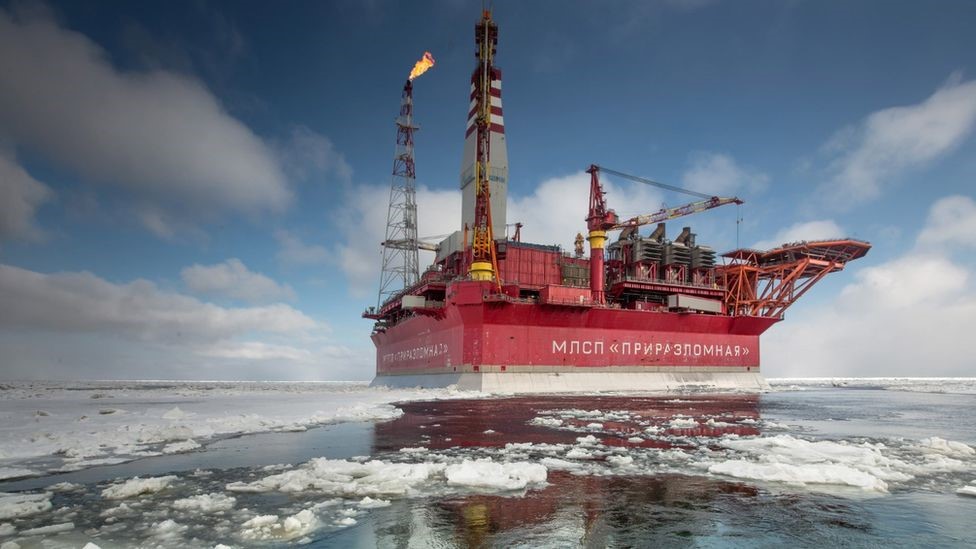Description

Disclaimer: Copyright infringement not intended.
Context
- Major oil-producing countries including Saudi Arabia, Iraq, the United Arab Emirates, as well as Russia, have announced cuts in oil production that will start in May.
- The announcement caused an instant uptick in prices of crude oil.
- Organization of the Petroleum Exporting Countries (OPEC), at its 48th meeting of the Joint Ministerial Monitoring Committee, acknowledged the crude oil production cuts announced by major oil-producing countries.
Why are OPEC+ countries cutting crude oil production?
- The decision to cut crude oil production was aimed at supporting market stability.
- In February 2023, Russia announced it would cut crude oil production by half a million barrels a day after Western countries capped the price of its crude as a response to the war in Ukraine.
- The G-7 bloc of advanced economies announced a price cap of $60 per barrel for Russian crude oil in December 2022.
- Moreover, recent developments in the banking sector in the U.S. and Europe, including the collapse of the Silicon Valley Bank and the turmoil at Credit Suisse, have fuelled the possibility of an incoming recession.
- The production cut is also a way of punishing short sellers who bet on oil prices declining.
.jpeg)
Quantum of output cuts
- Saudi Arabia will be cutting 5,00,000 barrels a day; Iraq 2,11,000; United Arab Emirates 1,44,000; Kuwait 1,28,000; Kazakhstan 78,000; Algeria 48,000; Oman 40,000; and Gabon 8,000 barrels a day.
- These cuts are in addition to the two million barrels per day cut announced in October 2022.
- Russia had already announced a cut of 5,00,000 barrels a day, earlier this year.
Impact on India
- According to the World Energy Outlook 2021 data, India ranks third in the world in crude oil imports after China and the U.S., while it ranks a distant 21 in crude oil production and 26 in natural gas production.
- The disparity in the two rankings shows the country’s increasing reliance on imports to meet its energy needs.
- India’s crude oil import from Russia touched new heights in February and was more than the combined imports from conventional suppliers like Iraq and Saudi Arabia.
- Russia’s increased share in India’s crude oil import is a direct consequence of the fallout between Russia and western countries following its Ukraine invasion.
About OPEC
- The Organization of the Petroleum Exporting Countries is an intergovernmental organization of 13 countries.
- Today, OPEC nations produce around 30% of the world's crude oil. Saudi Arabia is the biggest single oil producer within OPEC, producing more than 10 million barrels a day.

What is its mission?
- To "coordinate and unify the petroleum policies of its member countries and ensure the stabilization of oil markets, in order to secure an efficient, economic and regular supply of petroleum to consumers, a steady income to producers, and a fair return on capital for those investing in the petroleum industry."
Brief History
- OPEC is a permanent, intergovernmental Organization, created at the Baghdad Conference on September 10–14, 1960, by Iran, Iraq, Kuwait, Saudi Arabia and Venezuela.
- OPEC had its headquarters in Geneva, Switzerland, in the first five years of its existence. This was moved to Vienna, Austria, on September 1, 1965.
Who are its members?
- The current OPEC members are: Algeria, Angola, Equatorial Guinea, Gabon, Iran, Iraq, Kuwait, Libya, Nigeria, the Republic of the Congo, Saudi Arabia, the United Arab Emirates and Venezuela. Former OPEC members are Ecuador, Indonesia and Qatar.
Secretariat
- The Secretariat is the executive organ of OPEC.
- Located in Vienna, it also functions as the Headquarters of the Organization.
- It is responsible for the implementation of all resolutions passed by the Conference and carries out all decisions made by the Board of Governors.
- It also conducts research, the findings of which constitute key inputs in decision-making.
- The Secretariat was originally established in 1961 in Geneva, Switzerland. In April 1965, headquarters to shifted to the city of Vienna.

OPEC Fund
- The OPEC Fund for International Development is a multilateral development finance institution established in 1976.
- Its 12 Member Countries are: Algeria, Ecuador, Gabon, Indonesia, IR Iran, Iraq, Kuwait, Libya, Nigeria, Saudi Arabia, the United Arab Emirates and Venezuela.
- The organization works in cooperation with developing country partners and the international development community to support sustainable social and economic advancement in low- and middle-income countries around the world.
- It is the only globally mandated development institution that provides financing from member countries to non-member countries exclusively.
What is OPEC+?
- OPEC+ came into existence in late 2016 as a means for the top oil-exporting nations to exert control over the price of the precious commodity.
- OPEC+ is an amalgamation of OPEC and 10 other oil-exporting nations such as Russia and Kazakhstan.
|
PRACTICE QUESTION
Q) Discuss the impact of oil production cut by the OPEC+ countries on the global economy in general and Indian economy in particular. (250 words)
|

https://epaper.thehindu.com/ccidist-ws/th/th_delhi/issues/31799/OPS/GTHB3CCGE.1+GE2B3CM0L.1.html









